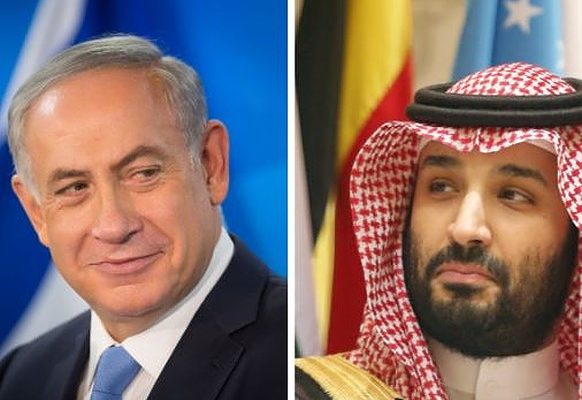“It will change our region in ways that are unimaginable. And I think it will facilitate, ultimately, a Palestinian-Israel peace. I believe in that. I intend to pursue it.”
By Associated Press
Israel’s designated prime minister, Benjamin Netanyahu, on Thursday vowed to seek full diplomatic relations with Saudi Arabia once he takes office, claiming that doing so would also promote peace with the Palestinians.
Netanyahu also said he would be open to restarting behind-the-scenes peace talks with the Palestinians.
The comments, made in a rare interview with an Arab news outlet, the Saudi-owned Al-Arabiya news channel, appeared to be aimed at easing concerns over the government that Netanyahu is forming with the Religious Zionist party. Netanyahu told the channel that he will set overall policies.
“I will govern and I will lead,” he said. “The other parties are joining me. I’m not joining them.”
Netanyahu said he hoped to expand the Abraham Accords — a set of normalization agreements reached with four Arab countries in 2020 — by reaching a similar deal with Saudi Arabia.
“It will be a quantum leap for an overall peace between Israel and the Arab world,” he said. “It will change our region in ways that are unimaginable. And I think it will facilitate, ultimately, a Palestinian-Israel peace. I believe in that. I intend to pursue it.”
“Of course, it’s up to the leadership of Saudi Arabia if they want to partake in this effort,” he added. “I certainly hope they would.”
Israel has long had behind-the-scenes contacts with Saudi Arabia — based largely on their shared animosity to Iran. But the Saudis have said full diplomatic relations will only come once an independent Palestinian state is established on territories Israel won in the 1967 Mideast war, when the Jewish state was attacked by the surrounding Arab countries intent on destroying it.
Netanyahu said he would seek peace with the Palestinians, perhaps through discreet negotiations. But he refused to endorse a two-state solution, calling instead for “a fresh view” and creative thinking. He also expressed support for an arrangement proposed by the Trump administration that was rejected by the Palestinians.
“I think we need to talk about it,” he said. “Maybe talk discreetly.”
“I believe in open covenants, secretly arrived at or discreetly arrived at,” he said.
During Netanyahu’s previous 12-year stint as prime minister, which ended last year, peace talks ground to a halt.
The Palestinians seek Judea and Samaria, eastern Jerusalem and the Gaza Strip for a future state, with Jerusalem as its capital.
Netanyahu gave few specifics on his vision of peace, but made clear that it would fall short of Palestinian demands.
“I would say that the Palestinians should have in a final settlement all the powers to govern themselves, but none of the powers to threaten the survival and existence of the state of Israel,” he said.
Palestinian President Mahmoud Abbas’ office declined to comment on Netanyahu’s remarks.
Netanyahu has reached a series of coalition deals, but still has not finalized an agreement. He has until Dec. 21 to form a government.
World Israel News contributed to this report.





